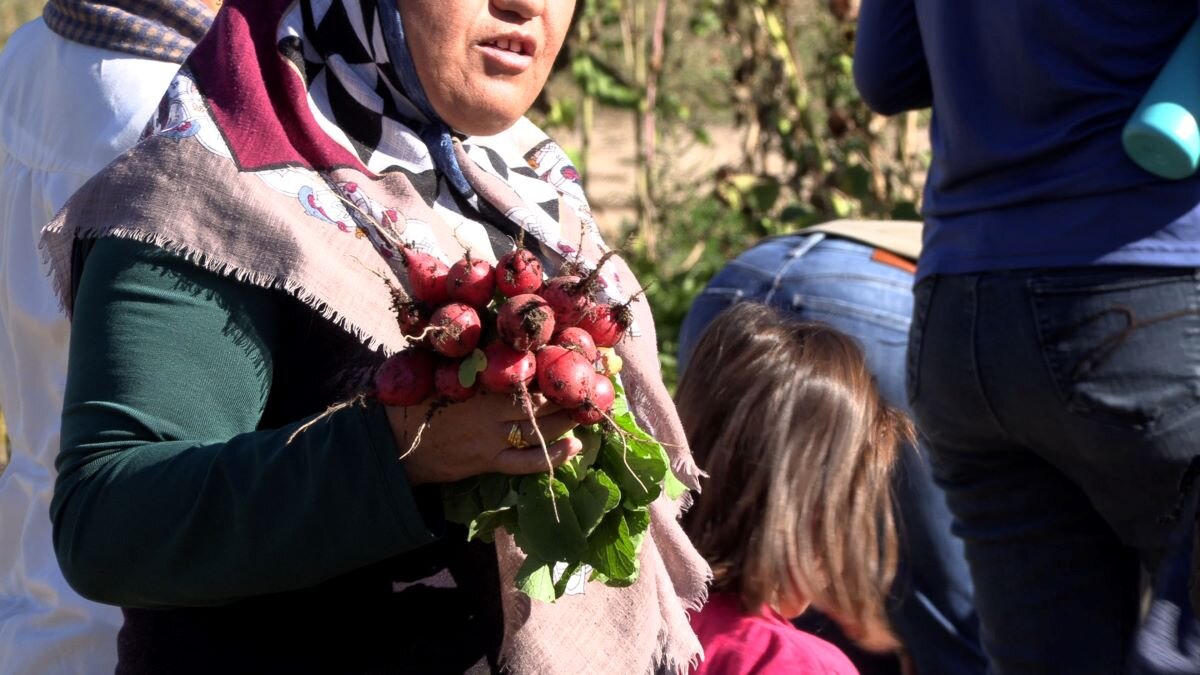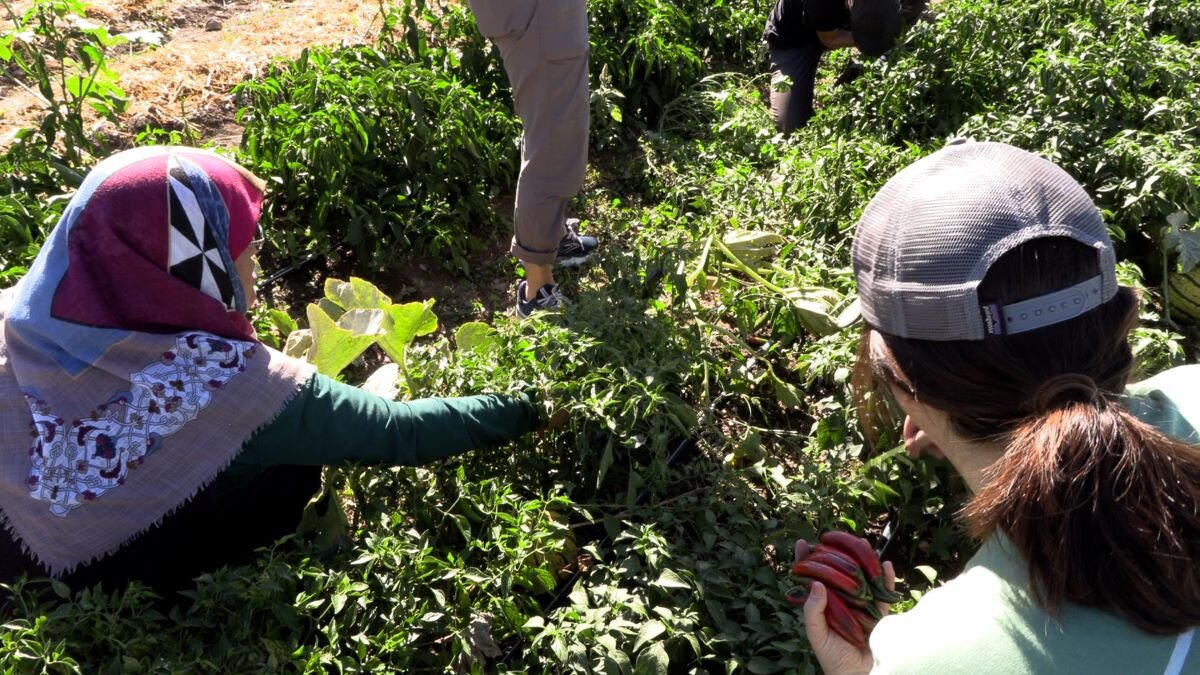Weekly farming group helps Afghan refugees feel more at home in Denver

DENVER — “We don’t have cars. We don’t have transportation. This is our only outing,” explained Mahmude, one of three Afghan refugee women who spoke with Rocky Mountain PBS about their new lives in Colorado.
The women left Afghanistan when the United States completed its military withdrawal last year. None of them wanted to use their last names and all of them spoke with the help of an interpreter who translated Dari, an Afghan dialect of Farsi, into English.
Mahmude has been in the U.S. for eight months and says Monday is now her favorite day of the week. “This is the highlight of my life, coming here every Monday. I’m happy to be here in the United States as my home country isn’t safe.”
The women come to Ekar Farm, an urban farm next to Denver Academy of Torah that started 14 years ago mainly serving the Jewish community.
In 2020, the pandemic forced Ekar Farm shift toward doing outreach across the city by collaborating with various nonprofits like Denver’s Metro Caring, an anti-hunger organization. All the produce that Ekar grows is donated to people in the metro area who are experiencing food insecurity, including these Afghan women and their children. Metro Caring and Ekar are partnering with Denver’s International Rescue Committee to transport them back and forth to the farm.
“What seems like a simple opportunity to grow food carries a lot of dimensions. The program allows the women to be around other people from their home country,” said Mireille Bakhos, who works with International Rescue Committee in Denver. “The media often highlights the war and challenges in Afghanistan but [these] programs are about resilience and the endless possibilities of human connections. It is about the power of people to heal and nurture positive change from the ground up, literally.”

The program runs from May through October due to weather. The women cultivate a small section of land and use the produce to cook fresh meals for their families at home in Denver.
Razye came from Afghanistan to the United States more than three years ago and says she grew up farming in her home country.
“I was a rancher. I had my own animals and I had big farm back in Afghanistan, so when I come to this farm, I feel so excited,” she said, explaining how the tomatoes and potatoes are her favorites to take home and cook. “We make food that reminds me of my country back home, and that’s the happiest I’ve been.”
Anywhere from 70,000 to 80,000 Afghan refugees are now living in the United States. According to the Colorado Refugee Program, Colorado has welcomed around 2,500 refugees since July of 2022. The United Nations Refugee Agency says that Afghans are one of the largest refugee populations in the world with an estimated 2.6 million registered across the globe in countries like Pakistan and Iran.

For Monira, who has been in Colorado for almost a year, the opportunity to connect and socialize with other women from her country is just as important as bringing home fruit and vegetables.
“First, we come here and we say ‘hello’ and we have a quick chat, and talk, and after that we harvest” she said, adding that being around people come from the same country make it easier to live in a new and unfamiliar place. “This is a country that’s unknown and new for us, so coming here to see people who speak the same language, and we became fast friends, and we talk.”
Monira hopes her work on the farm can help her life evolve into something new.
“My wish is to be able to start working and repay what people in Colorado have done for us, and find a job to contribute to this country, and this state,” she said.
Dana Knowles is a multimedia journalist at Rocky Mountain PBS. You can reach her at danaknowles@rmpbs.org.
Lindsey Ford is a multimedia journalist at Rocky Mountain PBS. You can reach her at lindseyford@rmpbs.org.